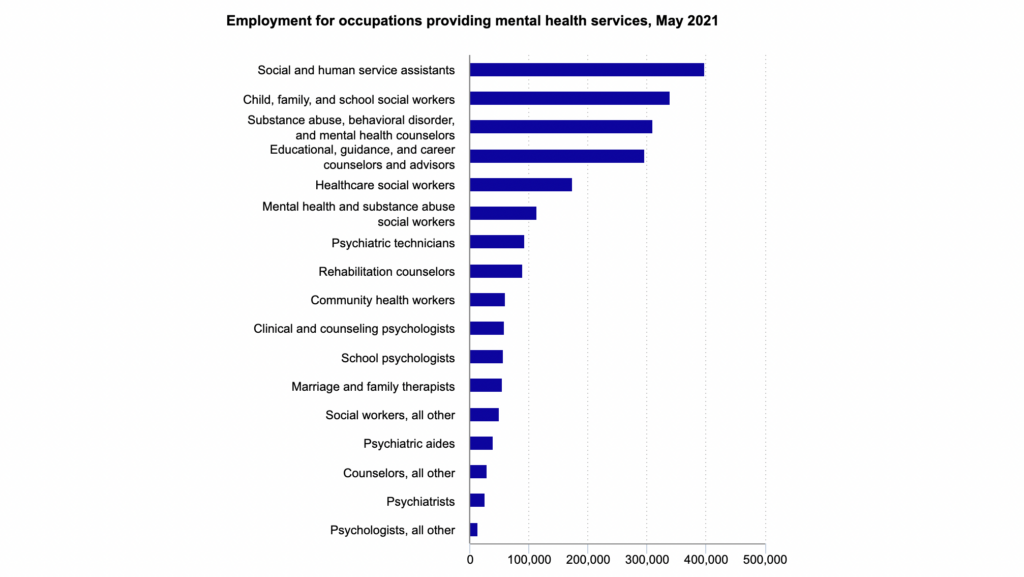Psychiatrists have the highest annual mean wage out of all mental health occupations and psychiatric aides have the lowest.
New data from The U.S. Bureau of Labor Statistics shows a wide range of behavioral health salaries in 2021.
The average annual mean wage for a psychiatrist was $250,000, according to the data. It is important to note that while psychiatrists are the highest earners in behavioral health, psychiatry is one of the 20 lowest earning physician specialties, according to Doximity’s Physician Compensation Report report.
Meanwhile, the mean wage for psychiatric aides was about $34,600 a year, according to the U.S. Bureau of Labor Statistics. To put that into perspective, the average annual wage in the U.S. was $58,260.

The data shows a large gap in income between psychiatrist and clinical and counseling psychologists, the second highest earners, who made just shy of $100,000 per year.
There was some variation in social worker salary depending on the speciality. Mental health and substance abuse social workers had a mean salary of roughly $58,000 a year. Child, family and school social workers had a mean salary of about $54,000. All other social workers had a mean wage of $63,000.
Workforce snapshot
The bureau reports there were nearly 400,000 social and human service assistants in 2021, making it the largest occupation providing mental health services. Child, family and school social workers made up the second largest occupation in behavioral health, with a workforce of 340,000. Additionally there were more than 310,000 mental health counselors.
Contrary, there were only 25,500 psychiatrists in the labor force.

Nationally there is a growing demand for mental health providers, with many operators reporting workforce challenges. In fact, a Kaiser Family Foundation Report found there are only enough behavioral health providers to meet 28.1% of the needs of the U.S. population.
About 130 million people in the U.S. live in a designated mental health clinician shortage area, according to Kaiser Family Foundation data.



